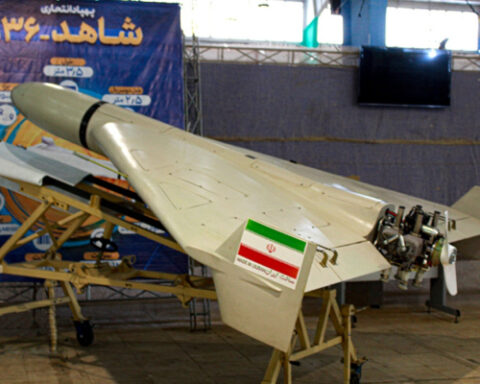Iran on Friday seized the Cyprus-registered fuel tanker Talara in the Strait of Hormuz, marking the country’s first such interdiction in over a year, according to shipping companies. The vessel, carrying diesel fuel from the United Arab Emirates to Singapore, was intercepted after entering the strategic waterway, highlighting the ongoing risk that Iran poses to global energy flows.
Iranian authorities have not publicly explained the seizure. Iran’s Foreign Ministry did not respond to requests for comment, though an Iranian diplomat confirmed the detention and suggested it could relate to a potential breach of Iranian laws. The move comes amid heightened concerns over Tehran’s nuclear program and continued friction with Western powers.
The U.S. Central Command, which oversees military operations in the Middle East, said it is monitoring the situation closely. “Commercial vessels are entitled to largely unimpeded rights of navigation and commerce on the high seas,” Centcom emphasized, signaling U.S. attention to any disruption of maritime trade in the region.
The Talara, flagged in the Marshall Islands, reportedly stopped communicating at 8:22 a.m. local time, according to its Cyprus-based manager, Columbia Shipmanagement. Security firms and maritime analysts indicated that after crossing into the Indian Ocean, the vessel was intercepted by the naval branch of the Islamic Revolutionary Guard Corps, a hard-line paramilitary force with considerable political influence in Tehran.
Ambrey, a maritime-security company, noted that the tanker had been approached by three small boats before abruptly turning toward Iran’s coast. The vessel ultimately steered toward Bandar-e-Jask, a facility controlled by the IRGC navy, before ceasing radio transmissions, according to commodities-data firm Kpler. Columbia said it has notified authorities and is working with maritime-security agencies to restore contact with the tanker.
The Strait of Hormuz remains one of the world’s most vital shipping lanes, with roughly a third of seaborne oil passing through its waters. Incidents in the Strait have historically triggered sharp increases in insurance costs and prompted some vessels to reroute. In 2019, the U.S. accused Iran of attacks on commercial ships following Washington’s withdrawal from the Obama-era nuclear deal and the imposition of sanctions on Iranian oil.
Although Iran has periodically threatened to close the Strait, it has rarely acted on those threats in recent years. The last comparable seizure occurred in April 2024, when Iranian forces detained the Portuguese-registered containership MSC Aries over alleged ties to Israel; the ship was released two months later.
Iran’s recent aggressive posture comes in the wake of a brief but intense 12-day conflict with Israel over the summer, during which Israel conducted airstrikes and intelligence operations aimed at slowing Tehran’s nuclear progress. While Iran denies seeking nuclear weapons, the U.S. asserts that Tehran has been developing the capability to produce them in a matter of months. The conflict concluded with a U.S.-brokered cease-fire, but nuclear negotiations have yet to yield meaningful progress.
Adding to regional instability, the Houthis, an Iran-backed militia in Yemen, have attacked multiple commercial ships in the Red Sea following the conflict in Gaza. The group has said it intends to adhere to a U.S.-brokered cease-fire between Israel and Hamas last month, though its activities underscore the fragility of maritime security in the Middle East.
The seizure of the Talara underscores the persistent threat Iran poses to freedom of navigation and global energy markets, highlighting the strategic importance of maintaining a strong U.S. and allied presence in the region.
[READ MORE: Florida Minister and Daughter Die in Plane Crash While Delivering Hurricane Aid to Jamaica]








